Contents
Home comfort is more than the indoor temperature. It includes other factors such as humidity. This is defined as the amount of water in the air. A higher-than-ideal humidity level will have people seeing and feeling adverse effects. Many homeowners often ask, “Why is my house so humid?”. This article discusses all you need to know about excessive humidity and what you can do to solve this indoor air quality problem.
Why Does My House Feel So Humid?
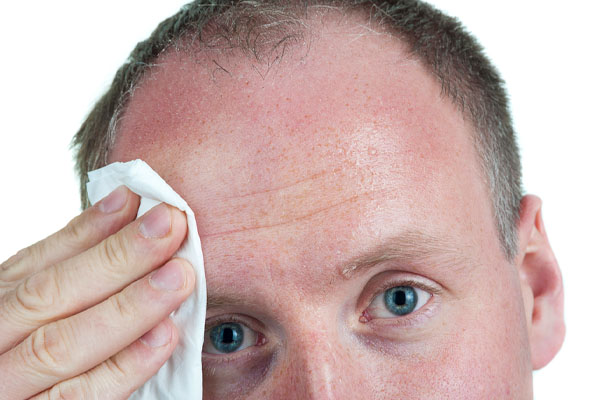
Check the indoor humidity if you have a fully functional air conditioner, but your home still feels uncomfortable. The humidity level likely rose too high. According to experts, the moisture level in the air should be around 30% to 50%. Dropping below the minimum range is bad for your home, while an increase above the maximum can also be problematic. Increased humidity in homes may be because of poor design, environmental factors, property damage, and incompatible equipment.
Why Excess Humidity Is Bad
Our body produces sweat when it’s hot as a way to start evaporative cooling. Excess humidity translates to the high moisture content in the air. Therefore, sweat doesn’t readily evaporate and instead stays on the skin. This causes people to feel hot and sticky regardless of the indoor temperature. There is also a chance that people may suffer from dehydration because their bodies continue to produce sweat to cool down without relief. Replenishing the lost water and electrolytes is essential.
Health problems may also be an issue. Bacteria thrive in hot and humid environments, so places with the highest moisture level only encourage their growth. This also includes mold, mildew, and dust mites. Mold spores can trigger allergic reactions in sensitive individuals. People with respiratory illnesses may suffer from asthma attacks. Others may experience breathing difficulties and have trouble sleeping at night.
How Can You Tell If You Have Excessive Humidity in Your Home?
Excessive humidity is apparent when you know what to look for. It has signs everywhere, and you may have even seen them without making the connection. This time, carefully inspect your home while taking note of the following:
Visible Condensation
Cold weather can lead to the water in the air to turn from gas to liquid. This typically happens in window panes. Water droplets on the glass cause it to be blurry, so you need to wipe the water off so you can see through the window properly. Metal doors may also have visible condensation.
Peeling Paint
High humidity can also cause moisture on the walls. As a result, you may see the paint or wallpaper wrinkling or developing bubbles. The paint may also begin peeling off because of the constant exposure to moisture.
Wet Stains
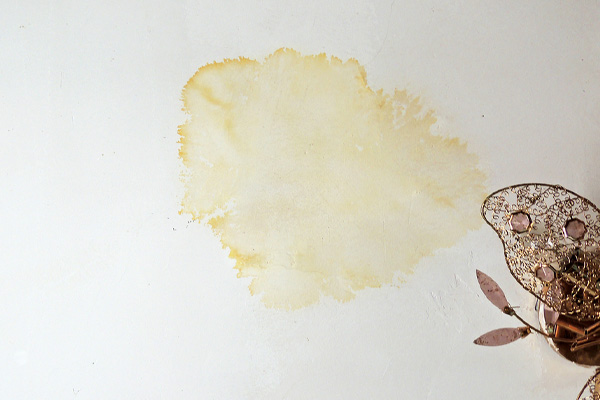
Look at the ceiling to check if its color is still uniform. If there are wet stains, the home likely has high humidity levels. The stains can extend to the walls at times as well.
Dark Spots
Dark spots on surfaces can point to mildew and mold. The fungi usually have a black or dark green color. Mold is known to flourish in places with high humidity, like constantly wet kitchens, bathrooms, attics, and basements.
Persistent Sweat
Persistent sweat is the number one physical sign that there is high humidity. Sweat usually evaporates fast from the skin and gives a cooling effect. You will feel hot and sticky if the sweat doesn’t go away. It cannot evaporate when the surrounding air is dense with moisture.
Causes Of High Humidity Levels in Your Home
Here are some of the common reasons for the high humidity levels in your home:
Everyday Activities
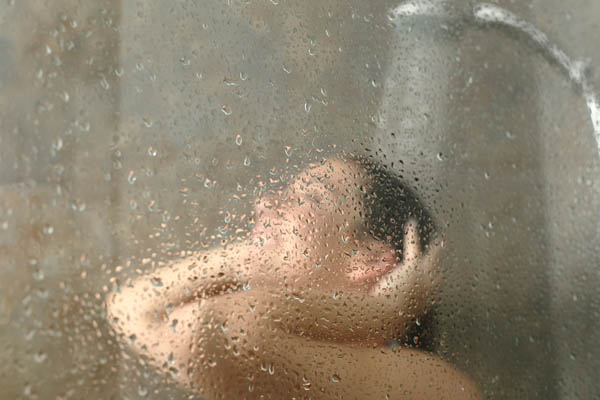
We use significant amounts of water in our homes for washing, cooking, and bathing. Some of the water evaporates and incorporates with the indoor air as water vapor. This spikes up the humidity, but only temporarily if your home has a good design.
Poor Ventilation
Wet areas require good ventilation so the excess water can escape outside, and the indoor humidity stays within the ideal level. For instance, bathrooms usually have exhaust fans or windows to handle the moisture.
Plumbing Leaks
Excess moisture can be caused by roofing or plumbing leaks. You may have to hire a roofer or plumber to resolve these issues. They can find the source and repair the problem permanently.
Oversized Air Conditioner
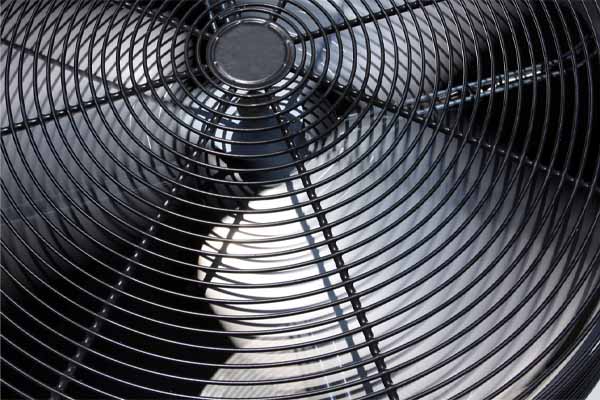
The problem may be because of a mismatch in the home’s cooling needs and the air conditioner size. An air conditioning system that’s too large means the temperature setting in the thermostat will be achieved immediately. As a result, the unit will shut off automatically before the system can reduce the indoor humidity. Replacing the HVAC system is necessary when dealing with an oversized AC unit.
Moisture Seepage
Be mindful of moisture that gets in your home from the ground. Water can seep through walls and make basement surfaces wet. Waterproofing and proper ventilation help minimize this issue.
Benefits Of Good Humidity Levels
High humidity in the air causes pollutants and allergens to become prevalent. Controlling how much moisture is in the air allows you to reduce these unwanted particles and keep respiratory issues at bay. This way, you will have healthier homes, and occupants will not feel sweaty and sticky. Lowering the humidity level helps your family feel comfortable year-round.
However, extremely low humidity has adverse effects. It can cause sore eyes, dry skin, nasal congestion, and irritated sinus. Wallpaper may peel off, and houseplants may wither. Hardwood floors can crack and separate. Low humidity for several weeks can result in cracks in wooden furniture as well. Therefore, ensure that the humidity is within the ideal range. Some indoor thermometers help measure the temperature and humidity so you can monitor them at all times.
How To Decrease Humidity in Your House
Here are some steps you can take to decrease the humidity in your home:
Use a Dehumidifier
Dehumidifiers remove the moisture in the air to reduce indoor humidity. They are available in various sizes, so you can find one that matches the specific needs of your home. Homeowners should assess if they require a whole-house dehumidifier to provide a whole-house solution.
Improve Ventilation
Ensure proper air movement in areas with high moisture, like the bathroom and kitchen. Open windows as much as possible. Turn on exhaust fans if there are any to force the humid air out.
Apply Weatherstripping
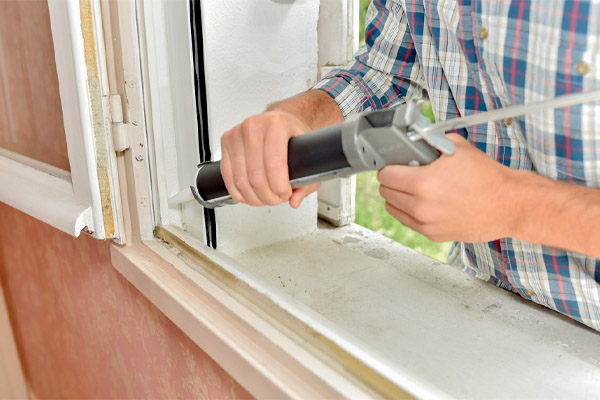
Seal the edges of windows and doors to keep the humid air from getting inside your home. Create an airtight seal with weatherstripping products. You can also use caulking for edges of wet areas such as toilets, sinks, and tubs.
Increase Insulation
Insulation helps keep conditioned air from flowing across walls via the gaps. It also acts as a thermal barrier between the outdoors and indoors.
Proper Air Conditioning Sizing
HVAC technicians assess if the current air conditioner is the right size for the home during routine maintenance. Old air conditioner units that are too large may be replaced with one that better matches the home’s cooling needs. This way, the humidity is reduced to ideal levels.
Conclusion
Many homes deal with a surplus of water in the air. Ensure that your home is comfortable and healthier by dealing with excess humidity head-on. Try the strategies listed above and consult an HVAC technician for professional help if the problem persists. They can help you through the use of advanced solutions at affordable costs.
Call Tevis Energy For All Of Your HVAC Requirements

Tevis Energy provides high-quality HVAC services in central Maryland and southern Pennsylvania. Rest assured, our company has the best professionally certified technicians who can conduct superior heating and cooling services, including replacements, tune-ups, repairs, and installations. Our friendly techs can service your HVAC system correctly using their extensive knowledge and experience.
Our company has the most competitive heating and cooling service prices in the area. Our maintenance services can help with energy efficiency and comfort improvements while reducing energy costs. If you need an HVAC repair or replacement system, we can recommend the most fitting solution for your home within your budget. All our work comes with a guarantee to ensure your satisfaction. Give Tevis Energy a call today to schedule a service appointment. We offer free, in-home estimates.
You can click here to contact us now or call us at (410) 876-6800 to find out more!
Posted in Blog
Tags: high humidity in house symptoms, how to lower humidity in house, how to reduce humidity in a room naturally, why is my house so humid in summer, why is my house so humid in the morning, why is my house so humid in the summer, why is my house so humid inside, why is my house so humid with the ac on